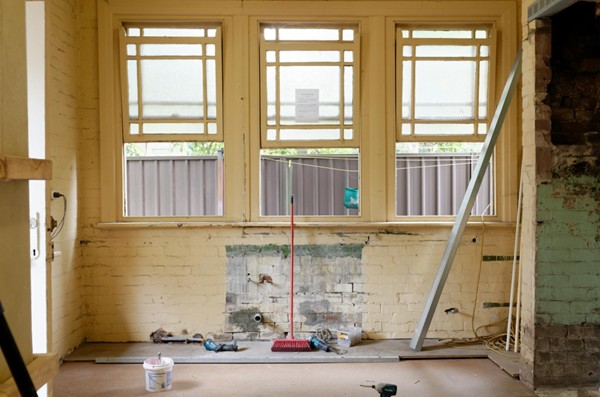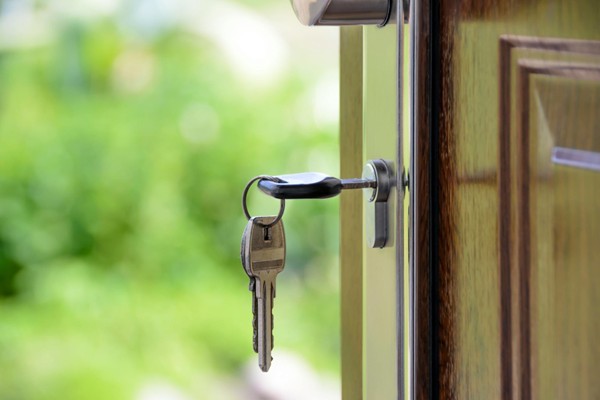If you are currently in the process of looking around to buy a home then you could be slightly anxious about what could go wrong. Instead of thinking this way, try to think positively about the whole thing. Buying a home can be a complicated process, you need to have the right experts on board to help you out.
Something to bear in mind is, if you don’t make your repayments then you risk losing your home. This is the last thing you want to happen so be 100% sure owning your own house is something you want to do.
A lot of people and families forget that when you go from renting to buying that you are now in charge of all damages and repairs that happen to your new home. It can be extremely helpful to put money aside for these emergencies each month so you know it’s there.
Check out the article below to find out more about buying your first home.
Know Your Limit
First things first you need to know how much you need to put down for a house. Having a rough idea of this will give you a base point to working out finances. Everyone needs a deposit for a house, no matter how small this is. You can put down any amount you want or have available, the minimum amount is usually 5% of the asking price. However, the typical amount people put down is 10%. How it works is, the higher the deposit you put down, the lower your monthly mortgage payments will be.
Find The Right Mortgage & Get It Approved
Once you have figured out your budget you will need to apply for mortgages stating how much you have. They will use this amount along with your own finances to give you a baseline amount you could borrow. So for example, if you are trying to buy a home that is £200,000 and you have 10% deposit available then you will need a mortgage amount of around £180,000 from the bank or lender you are using.
It can sometimes help to have a mortgage approved in principle before you start looking around at homes. This way you are one step ahead of everyone else that is trying to get on the ladder or climb it. Many places offer mortgages in principle, you could also speak to a reputable mortgage broker who can help find you the best deal.
Once you have this approved, you can start looking at areas and houses using an estate agent.
Start Shopping Around
So you have all your finances worked out and saved in your head. Now it’s time to shop around for your dream home. The more money you have to spend, the better the home will be. However, that’s not to say you won’t get an absolute bargain somewhere. Sometimes you get lucky and someone just wants to get rid of a home so will lower the asking price.
You need to be looking around at houses that fall into your budget. There is no point looking at houses worth £500,000 if you only have £300,000 available to spend. This type of thing will only result in disappointment as you won’t be able to buy it.
Contact a local estate agent who specialises in homes for sale, check out reviews or ask around your friends and family to see who they used. You could also do your own research using home selling sites and then get in touch if you find something you like. You should always make an appointment to look around any houses you like, try at different times of day so you also get a feel for neighbours and the local area.
The last thing you want is to buy a home and not know what the area is like, check crime rates and speak to people who live there. They will always be honest with their opinions, and you can base if you want the house from this. You don’t want to risk moving somewhere where a brick could come through your window at any time.
Don’t Neglect Fixer Uppers
One thing you might not have considered is looking into fixer uppers. Depending on how much money you have available, this could be a wonderful option. Of course, we don’t mean buying a home that is falling apart. It could just need some work doing here and there with flooring, walls, or even electricals.

Check out home auction sites near you if this is something you want to look into. You never know what you might find. If you have extra money saved for materials, supplies, and workmen then why not. This is a great way to take a house and create your dream home.
Consider All Moving Costs
A lot of people forget about the costs of moving. They assume once the house is paid for then that’s everything. However, you then have the cost of boxes to pack your stuff, removal men, or hiring a van to do this yourself. You might also have to pay out for storage if your home is not ready to move into. Add up all these costs individually and make sure you have the money available. You will also need to have money in your budget for conveyancing fees and solicitor fees. It all adds up so every little helps when you are buying a home.
Speak To a Property Lawyer
You will always need a lawyer to sign off on your paperwork when buying a house. You will also need one if you ever decide to sell and buy another one. If you look around for a reputable property lawyer then you can go back to them time and time again. There will always be lawyers around but you want to make sure they know exactly what they are doing. Anything can slow you down in the house buying process and the last thing you want is for it to be your solicitor.
Start Packing Up
Once all your paperwork has been approved and you have set a move date with your sellers then it is time to start packing up. You might not think you have a lot, but the smaller things add up to a lot of space taken up in boxes. Make sure you have enough boxes and don’t overload them as you don’t want your belongings falling out the bottom.
Sign All Paperwork
You, the seller, and both of your legal representatives need to be there to sign all of the correct and relevant paperwork. Your legal representative needs to be there to ensure that everything is signed correctly, where it needs to be signed, and to act as witness for the transaction. This way, there can never be any contention as to the fact that all of the paperwork was signed willingly and freely.
There will be a lot of paperwork to go through, so ensure that all of it is signed and dated correctly, double checking everything before you sign. Never, ever sign a contract that you have not read, because you never know if anything has been changed from what you agreed and you do not want to be caught in a problem like that.
Receive Keys
Receiving the keys is a great moment in the property buying process. It’s the moment where you feel all of the stress melting away because you’ve finally done it, you’ve brought a property! You can then get into your new home, and start making the necessary changes to turn it into your space, rather than the previous owners.
When you receive your keys, ask if you have all of them. Double check that there is nobody else with keys that fit into the current locks, just to be on the safe side.
Change Locks
The final thing that we’re going to mention here is changing the locks. Some people might think that this sounds a little on the paranoid side, but would you want strangers having keys to your home? When you sign the paperwork and receive the keys, you can never be 100% sure that you have all of the keys. Maybe family members have spare keys and the sellers forgot, or maybe there’s someone else out there who has one. It’s not worth taking the risk, and therefore you should be changing the locks as soon as you move in.
This will give you peace of mind that the only people who have access to your new home are the people that you want to give access to.

We hope that you have found this article helpful, and now see all of the things that you’re going to need to think about when it comes to buying your first home. We know that there’s a lot to think about, and we know that there are going to be times where you find yourself wanting to pull your hair out, but we promise that it’s worth it. Just slow down a little and breathe. Not everything has to move so fast if you’re not ready for it to. You’re in control of the situation, and most importantly, don’t settle for a property that isn’t what you want.



Comments are closed.